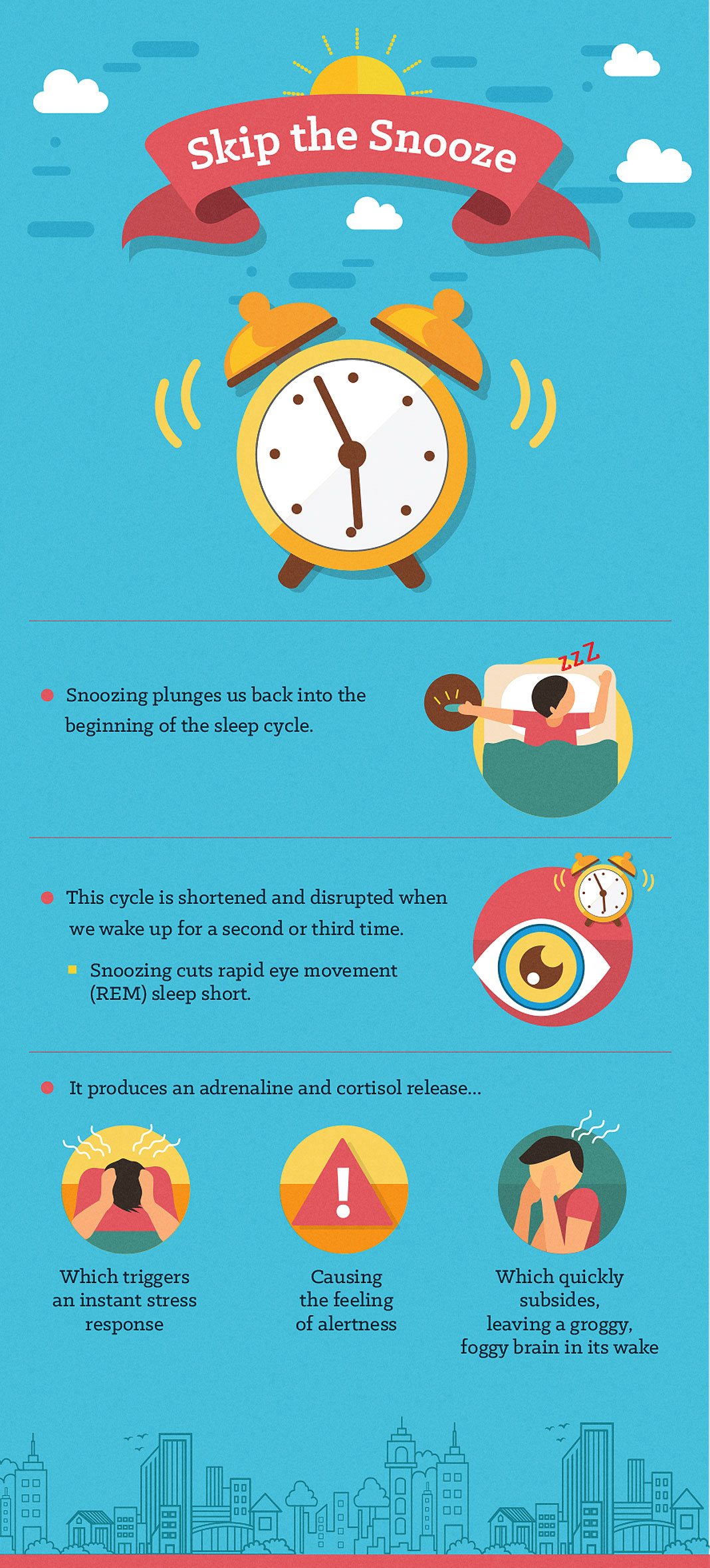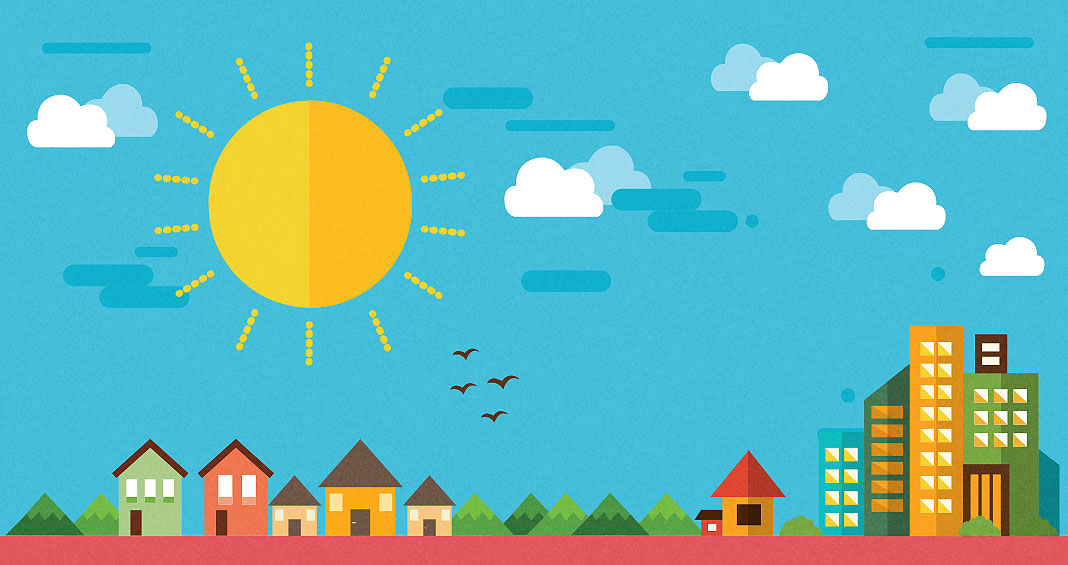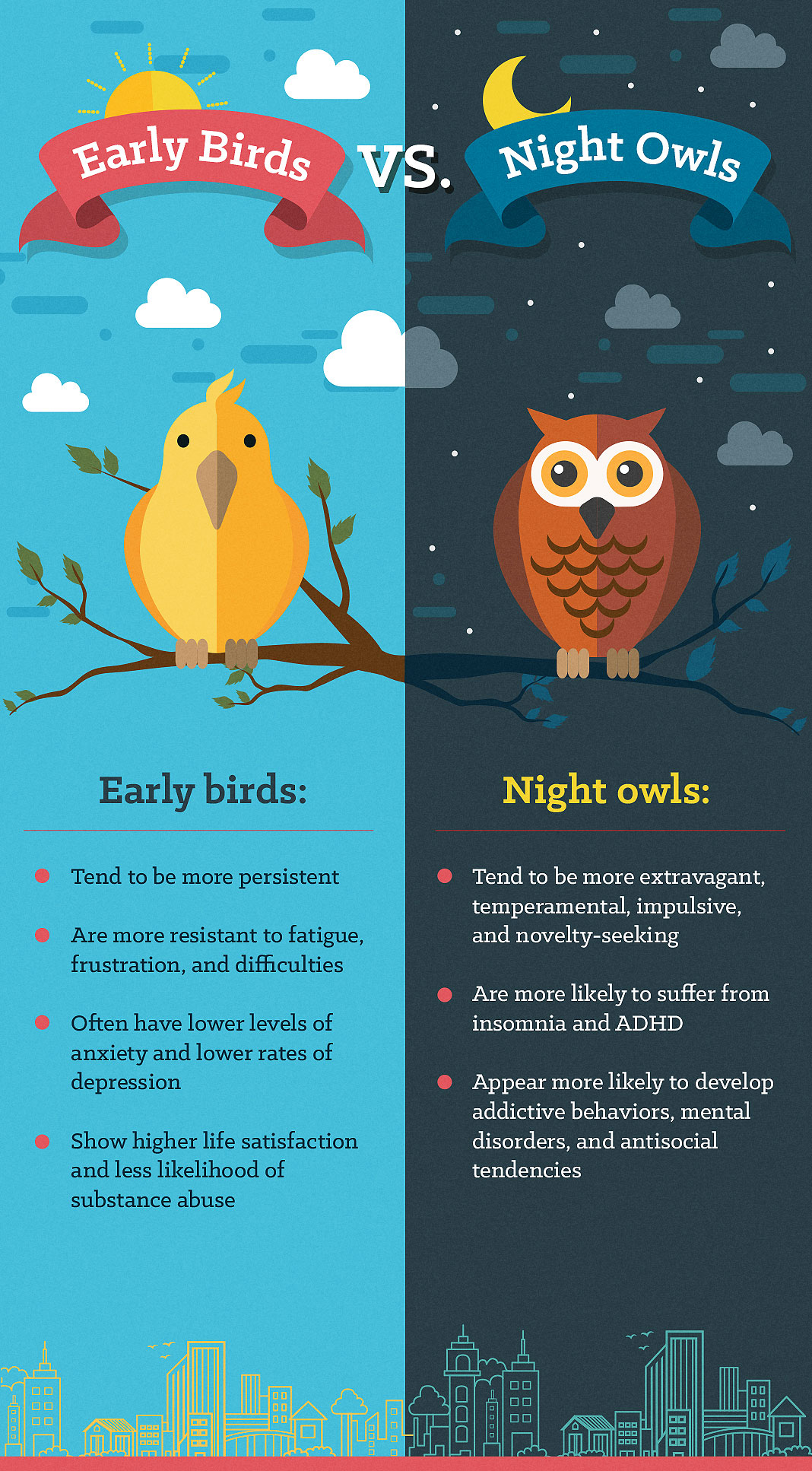This is a guest post by Danielle Emig, originally written for Health Perch:
In a perfect world, we would all wake up naturally with the sun, refreshed, awake, and ready to tackle the day. However, if you aren’t naturally an early riser, being a morning person is a struggle, no matter what ringtone the alarm is set to. Many of us intend to wake up early to check items off the to-do list, but end up hitting the snooze button until we’re running late. We’re often too tired, too stressed and left with too little time to do everything we planned to start the day.
Take Advantage of the A.M.
Do morning people lead better lives than the rest of us? Research suggests that morning people are happier and healthier. Sunlight can boost mood, and the extra sun provides an added dose of vitamin D, which many of us lack during the cold seasons. In winter, when the days are shorter and the workdays end well after dark, waking up earlier allows us to enjoy more sunlight.
Also, how you start the day sets the tone for your waking hours. Hit that snooze button continuously? You may procrastinate for the rest of day, just as you did with your alarm.
Have trouble sticking to a workout routine? It’s easier to maintain it when you’re an early riser and knock it out in the morning. That way, if plans come up during the day, there’s no need to skip the gym for happy hour. Plus, bumping up the heart rate in the morning preps you for the day ahead.
For those with a family, loud neighbors, or other distractions, becoming an early riser provides more time to get things done while the house is still quiet. Imagine having the time to read that novel that’s been sitting on the nightstand, clean the house so it’s spotless after work, or prep a healthy meal. Those that wake up earlier are proven to be more proactive than those who consider themselves night owls. Plus, for wishful thinkers out there, many wealthy, successful people (think Bill Gates) have stated they wake up three or more hours before work.
Becoming a morning person has its advantages. If you want to enjoy a complete breakfast, read the newspaper, or just take in the early morning, follow these steps to change your daily routine.
10 Steps to Become a Morning Person
Step 1: Start with small changes
Setting your alarm clock for 6 a.m. when you normally wake up at 8 a.m. may be too aggressive to maintain. Set the clock 15 minutes earlier and go to bed 15 minutes earlier each week until you meet your desired rise time. The gradual difference will allow your body to get used to the schedule change and the small difference won’t feel like a byproduct of jetlag. Just make sure to stick to the routine—even on weekends—or else you’ll jeopardize your internal clock and waking up during the week will continue to be a challenge.
Step 2: Get ready for the morning at night
This routine starts with what you do before you close your eyes. Staring at a computer screen right before bed will hinder your sleep, since light exposure suppresses melatonin, a hormone that helps promote sleep. Shut off all TVs and smart devices one hour before bed, and instead reach for a novel that will calm your mind. And if you do have to use a phone, like to set the alarm, make sure to dim the brightness.
Having a routine before bedtime will let your body know it’s time to sleep. Start a relaxing nightly pattern, like sipping on decaffeinated tea and reading a book or taking a warm bath. Make the morning process easier by laying out the next day’s outfit the night before. If you have trouble making time for a good meal in the morning, try prepping breakfast in advance—think hard-boiled eggs and egg muffins.
Step 3: Make your bedroom a sleep sanctuary
It’s tempting, but try not to watch TV in bed. Keep movies, TVs, and computers in the living room and consider the bedroom a haven for relaxation and sleep. It should be calm, dark, and cool to allow comfortable sleep. The ideal temperature for sleep is around 65 degrees Fahrenheit. (Set the thermostat a few notches higher if you like it warmer during the day.) The cooler temps will tell your brain it’s time for bed and research shows that could be good for your metabolism. Have clutter laying around? It could be stressing you out. A clean, organized room provides a better sleeping space than a messy one.
Step 4: Place your alarm clock across the room
Placing the alarm clock across the room (and not in arm’s distance from the bed) means you have to get up to turn it off—but just make sure you don’t climb back under the covers. The movement may help energize you to get started with the day. Leave your bedroom soon after waking. Since you’ve made it a sleep sanctuary, it’s important to walk to another area of the house as soon as possible, like the kitchen or bathroom.
Step 5: Wake with the sun
Our bodies were designed to be awake with the sun and sleep when it’s dark outside, but the artificial light in the office and curtained-off windows in your bedroom can alter this. Exposing yourself to sunlight, which is known as light therapy, tells your brain it’s morning and time to get going. Open up your curtains to let natural light in. If sunlight is limited, invest in a sun lamp that mimics natural sunlight, which can also improve seasonal depression. Try this technique the next time you experience jet lag, since it’ll help reset your biological clock.
Step 6: Work out in the morning
Not only will hitting the gym early in the day help you stick to a workout routine, but a morning sweat session can increase metabolism and energy throughout the day, and you may be prompted to reach for healthier food options. Research also shows that exercising before breakfast burns more fat than doing so after breakfast or in the evening. But if you’re a serious athlete, eat a light meal with carbs to improve performance. Can’t spare an hour at the gym? Take a 10-minute brisk walk outside to get some fresh air and sunlight.
Step 7: Drink a glass of water
After getting a full night’s rest (hopefully seven to eight hours) your body will be dehydrated from lack of water, causing fatigue. Quickly replenish hydration levels first thing in the morning with a full glass of water. While you’re at it, splash some cool water on your face for an added refresher.
Step 8: Start with a healthy breakfast
Rushing out the door with a coffee and bagel in hand may not fill you up and can leave you with cravings later on. A person’s metabolism and blood sugar are at their lowest in the morning after sleeping all night, so re-energize with a balanced breakfast that includes protein and whole grains. Rotate meals, find new ones, and eat foods you enjoy so breakfast becomes a moment to look forward to. Greek yogurt with berries or eggs and avocado with a side of green teat will help rev you up for the day ahead.
Step 9: Have something to look forward to
Remember when you were a little kid and you jumped out of bed on Christmas morning or when you left for vacation? Plan at least one exciting date, happy hour with friends, or a fun night in each week so you’ll have something to look forward to each passing day. Getting up can be a struggle if the only agenda for the day is going to a stressful or boring job when you’d rather stay in bed. Whether it’s a hobby like yoga, a cooking class, or a date, focus on what excites you rather than things that make you dread getting up.
Step 10: Avoid grogginess
 If, even after eight hours of sleep, you wake up feeling groggy, it could be because you’re interrupting your sleep cycle. REM, or rapid eye movement, stimulates the brain to learn. It’s a deep stage of sleep where dreams typically happen, and if abruptly woken up during this stage, you will feel disoriented and groggy. Sleep inertia, a physiological state caused by waking up suddenly and too early, can affect people from two to four hours. Studies show that even if you feel awake, sleep inertia can affect cognitive skills, challenging productivity levels at work.
If, even after eight hours of sleep, you wake up feeling groggy, it could be because you’re interrupting your sleep cycle. REM, or rapid eye movement, stimulates the brain to learn. It’s a deep stage of sleep where dreams typically happen, and if abruptly woken up during this stage, you will feel disoriented and groggy. Sleep inertia, a physiological state caused by waking up suddenly and too early, can affect people from two to four hours. Studies show that even if you feel awake, sleep inertia can affect cognitive skills, challenging productivity levels at work.
Try a smartphone app for help: Using a smartphone set under your pillow, the app tracks sleep cycles and wakes you when you’re in your lightest sleep phase. Hitting the snooze button will also disrupt this cycle. It takes about one hour to reach a deep sleep, and the fragmented dozing can actually leave you more tired.
Even though alcohol may make us pass out at the end of the night, it inhibits the deep sleep needed to wake up feeling refreshed. Avoid booze before bed, and if you do enjoy a few cocktails during happy hour, make sure to drink plenty of water before sleeping to counter the effects.



Leave a Reply